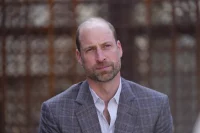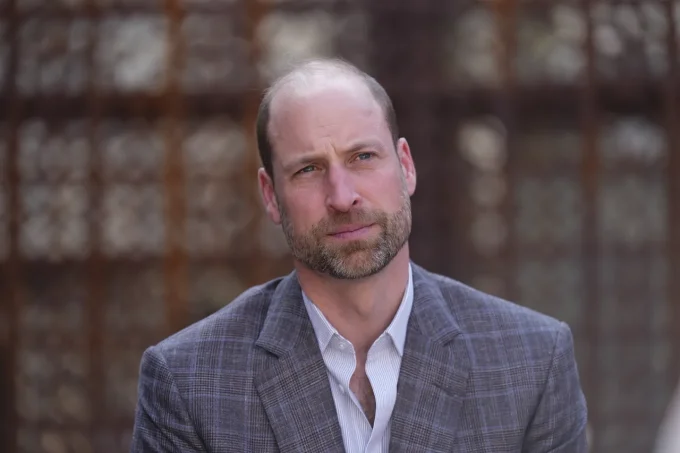The challenge of achieving long term food security in Africa is real and the need is urgent. We must move beyond rhetoric towards concrete action if we are to ensure that African consumers in traditionally food insecure regions have access to affordable food.
Whilst the advocacy efforts of international think tanks and advocacy groups are valuable in getting this critical issue on the agenda, it is important to distinguish between cases of land grab, and cases where real change will be delivered in a meaningful way through sustainable investment in critical agricultural businesses and related infrastructure.
That latter thesis is at the heart of Concord, a large-scale agriculture business created in South Sudan. The project is now sustainably developing some 250,000 acres of land that will both help improve food security in Africa’s newest nation, being geared towards domestic consumption needs rather than exports, and impart tangible social and economic benefits to the surrounding community. Concord, based in Unity State in South Sudan, is established on land obtained under a long-term lease granted by the Government of South Sudan in 2009.
There, we will grow desperately needed crops including wheat, sorghum and maize, all of it for local consumption. Large-scale farming using the latest global best practices is the most efficient, scalable and sustainable way to achieve meaningful food security while ensuring that smallholders and pastoralist migrants have access to land and resources — and, if they should choose, the opportunity to compete for paid employment that carries substantial training benefits.
Naturally, this point of view is not shared by everyone but a look beyond the headlines reveals a more down-to-earth reality rooted in sustainability and the need of all African nations to depend less on inadequate development techniques and handouts, and more on innovative models presented through the deployment of private capital. Simply put: responsible and ethical large-scale agriculture is an effective method for a developing nation to ensure food security — a reality brought home by experiences in Egypt and, more recently, in Zimbabwe, where productivity has been slashed after large farms were converted into smallholdings with a fraction of the productivity.
Indeed, this conversion into smallholdings is at the heart of Egypt’s transformation from one of our continent’s bread baskets into the largest single wheat importer in the world. We believe that increasing food production for sale in local markets is critical, driven by the need to increase and assure food security within South Sudan and reduce the country’s reliance on expensive imports and inefficient aid. We also believe that with the existing economic dynamics, large-scale investment in agriculture for local consumption could not have been timelier.
To put things in perspective, crop exports from South Sudan are not competitive on a regional or global scale. The direct cost of production on is c.US$ 525 per acre, compared to an average US$ 325 per acre in developed agriculture economies (based on the same levels of crop inputs being used). There is also the capital cost of development on site which amounts to US$ 375 to US$ 400 per acre, compared to an average of US$ 225 to US$ 250 per acre in a developed agricultural economy. In addition to the direct production costs, we must also factor in the cost of transport, both of equipment into South Sudan and conversely of crops headed to foreign markets.
Shipping a single 40ft container of agricultural equipment costs in excess of $22,000 to clear and transport from the port of Mombasa in Kenya to the project site, ranking alongside some of the most expensive logistics in the world. Low current output alongside substantial production and transport costs, compounded by the impact of unscrupulous middlemen are reflected in the exceptional prices South Sudanese citizens pay at market. A kilogram of maize at the retail level is sold at US$ 10 per kilogram, and a three-liter bottle of cooking oil costs a staggering US$ 16.
Therefore, in view of production and transport economics, the clear and urgent demand for safe, healthy and affordable food in South Sudan and a desire by GOSS officials to curb imports, Concord was entirely conceived and built to serve local needs. Concord will continue to serve the needs of the domestic market for the foreseeable future. Concord is a long-term investment. To date, Citadel Capital has invested US$ 25 million in the project, a figure that makes us by far one of the largest investors in South Sudan outside the oil industry.
With a pressing need to transfer knowledge to South Sudanese staff and build critical infrastructure, Concord will reach commercial viability in years, not months. There are faster ways to generate outstanding returns in Africa. The same US$ 25 million invested in Juba real estate in 2009, for example, would have seen Citadel Capital double its money. But this is not our approach. Citadel Capital looks to generate superior long-term returns through long-term investing that leaves the communities in which we do business better than we found them.
Our goal is to make a profit, and in doing so we aim to help South Sudan address its pressing development challenges by playing a meaningful role in industry-building as a responsible development partner. That’s why Citadel Capital is already implementing plans to re-invest a proportion of our profits in the local community, following community consultation on local priorities in order to improve livelihoods. The long term intentions of international investors in regard to land have often been called into question, and that is why we have opted to build Concord (like our other agriculture investments outside Egypt) on a land-lease basis, ensuring land ownership is always retained by the host country.
The firm is mandated to fulfill specific requirements under the contract to ensure the investment is beneficial to the local community and host country. The 25-year lease we obtained in 2009 was signed with Unity State and endorsed by both the Government of Sudan (GOS) and the then-local Government of South Sudan (GOSS), given that it was signed prior to the independence of South Sudan. To ensure we were good shepherds of the land for which we have obtained a lease, Citadel Capital brought in a specialist in 2009 to undertake scoping studies.
Notably, development in the pilot stage has been very limited owing to the logistical challenges noted above, and where it has taken place it has been very distant from any settlement or village. As a follow up, we have contracted a consultant from Uganda to start working on an environmental sustainability and impact assessment (EISA). Three years into the project, we are now preparing to move out of the pilot phase, and we expect the full EISA to be prepared by the start of our first full commercial season. According to our masterplan, Concord will only be cultivating 120,000 acres (116,000 feddans) of the total 250,000 acre plot of land, which we will develop in a checker board form to respect the rights of the migratory Fallata pastoralists.
This approach will enable them to maintain their annual migration routes — and will also preserve critical bio-diversity on site. Concord’s full time workforce today has a 25% local component, which is far higher than other similar projects in South Sudan. Being a profit seeking operation, we would prefer to hire locally rather than engage foreign staff given the cost differential. However, this is currently a challenging proposition at this stage of South Sudan’s development due to a shallow local talent pool with the required skills. We propose to address this through the transfer of skills and knowledge in order to build the capacity of local staff to work productively on the project.
Bearing in mind the current shortage of local talent and the need to recruit specialist skills now whilst we build local capacity for the long term, we have decided to tap into an existing African pool of talent in mechanized farming from Zimbabwe, noting that the developments in the agricultural sector in that country have created an exodus of people with deep experience and great skill who accept to work in extremely remote and harsh conditions — a rare and valuable combination. Over time, this investment in knowledge transfer will give local residents the skills they need to become well-paid, mobile members of a national workforce — and see them become the next generation of trainers.
Just as Concord itself will provide a sustainable development template that will help build food security in Africa’s newest nation, the workers it trains will become tomorrow’s leading agronomists, managers and foremen on the farms that will increasingly appear on the landscape to replicate what we hope will be an outstanding success story. Karim Sadek is Managing Director at Citadel Capital, the leading private equity firm in Africa with US$ 9 billion in investments under control spanning 15 industries and 15 countries.
















































![Pula Co-Founders and Co-CEOs, Rose Goslinga & Thomas Njeru. Pula provides agricultural insurance and digital products to help smallholder farmers manage climate risks, improve farming practices and increase their incomes. [ Photo / Courtesy ]](https://businesstoday.co.ke/wp-content/uploads/2021/01/Pula-Co-Founders-and-Co-CEOs-Thomas-Njeru-Rose-Goslinga.jpg)



























































Leave a comment